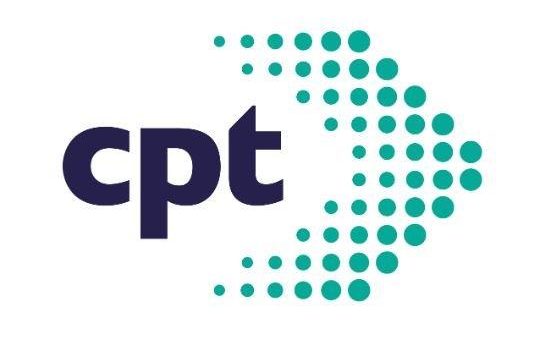
- Taskforce of industry experts join forces to reach net zero targets
- 81% of the UK’s 2,500 coach operators are family or individually run
- The phasing out of new diesel vehicles by 2040 affects 27,500 coaches in the UK
- Low-carbon fuels needed to sustain long-distance coach trips for holidaymakers, intercity travellers and sports fans until zero-emission technology becomes more readily available and affordable
- Coach is already the greenest way of travelling around the country – one vehicle can take up to 50 cars off the road, with each trip emitting CO2 1.5 times less than rail, five times lower than planes and six times lower than a car.
|
A greater use of low carbon fuels in the short-term and more zero emission refuelling or charging infrastructure as part of a National Zero Emission coach strategy are needed to maintain affordable long distance coach travel when new diesel vehicles are phased out in 2040. This is according to a report by leading industry experts from the Zero Emission Coach Taskforce (ZECT) that’s led by the Confederation of Passenger Transport and leaders from the coach, manufacturing and supply industries. ZECT’s recently published report Coach Route Map to Destination Zero, sets out how, with the right Government support, the sector could make great strides towards meeting its decarbonisation goals. It includes positive quick-win, cost-neutral solutions to help the sector, 81% of which are family or individually run, to successfully transition to zero emission vehicles by 2050. Ian Luckett, Chair of ZECT said: “Our report reveals that coach operators are wholly committed to decarbonising their 27,500 strong fleet in time for Net Zero targets. “We’ve identified simple and value-for-money solutions that include legislation changes on vehicle weight loads, tax incentives to encourage low carbon fuel use until zero emission technology becomes more viable, as well as incorporating coaches into zero emission Government funding already committed to cars, vans, buses and HGVs. “We look forward to working with the Government on a National Zero Emission Coach Strategy, so that operators can continue to provide the wide range of vital services for their passengers in a carbonless future.” Graham Vidler, Chief Executive of the Confederation of Passenger Transport said: “Coach is already the greenest way of travelling around the country and the coach sector is determined to stay ahead on the journey to net zero “ZECT was formed to build a collaborative approach between government and industry and it is crucial the Taskforce’s constructive recommendations are delivered imminently to provide confidence to the sector to invest in a green future.” Transitioning to net zero is a strategic ambition of Maynes Coaches, a fifth-generation family run company in the Moray Firth in Scotland, who boast the latest low emission diesel Euro VI engines across their entire fleet. Maynes do more mileage on a direct trip than most other UK coach operators. As a greener alternative than taking the car or a plane, Maynes routinely travel 159 miles for four-hours from their depot in the town of Buckie to Thurso, the most northerly town on the British mainland. This is to pick up passengers off a boat from the Orkney islands and then take them to Dover via a ferry and into Switzerland. Locally too, a Maynes coach easily exceeds more than 200 miles a day, taking shift workers to a shortbread factory at 4am and 10pm, with school runs and private hire work in between. Without available recharging and refuelling points, public transport in Moray and the Highlands could take longer when the sale of new diesel vehicles ends in 2040. Kevin Maynes, Operations Director at Maynes Coaches, said: “While we are ready and excited about the challenge of decarbonising our fleet, some coach businesses are frightened to invest in new technologies due to cost and a lack of information on which step to take – hydrogen or electric. “If there’s a greater focus on more refuelling and recharging points through a government policy shift, then more operators and the rest of the UK will follow suit in investing in low and net zero technologies. “The UK Government needs to follow Scotland’s lead as the first Parliament in the UK to allocate zero emission funding to not just buses, but coaches too.” A third of operators’ work is made up of 600,000 daily home to school trips. It is the long-distance services on top of this, which cater for holidaymakers, intercity travellers and sports fans, that keep the sector thriving and in business. The Coach sector contributes £14 billion to the UK economy each year and in 2019 alone, was responsible for 23million visits to tourist hotspots. To sustain this important work, ZECT has identified ways in which the sector can play its part in decarbonisation. Solutions include: transitional technologies, such as engine retrofitting for hydrogen combustion, engine repowering and the use of low carbon fuels; working with manufacturers on trials and specifications for future zero emission coaches; sharing of best practice and the enabling of vehicles owned by other operators to access recharging or refuelling infrastructure at coach depots to create a reliable network. The report calls for the Government to provide additional support through:
With the UK’s net zero target of 2050 in focus, CPT is developing an online platform to help operators navigate the process, including the installation of infrastructure. Coach operators are encouraged to contribute to the Taskforce by feedbacking on their own experiences of zero emission vehicles by contacting zect@cpt-uk.org. |





